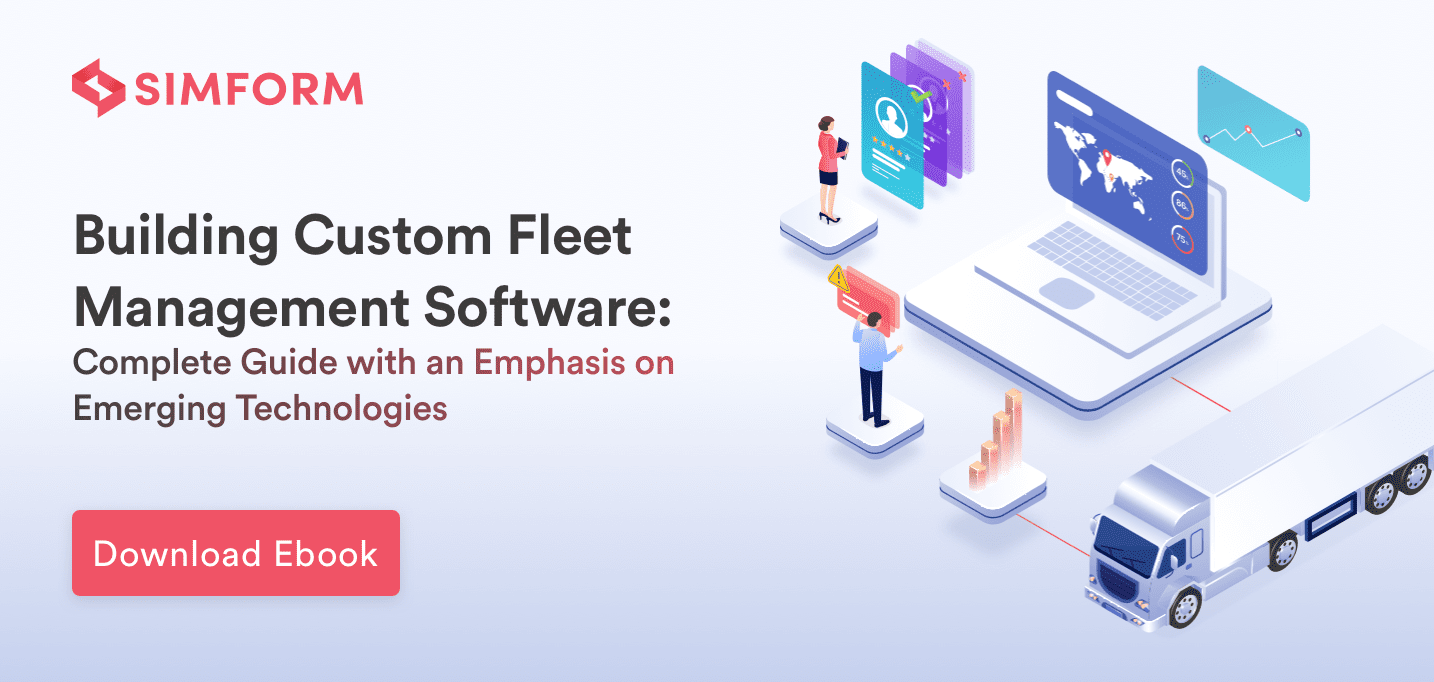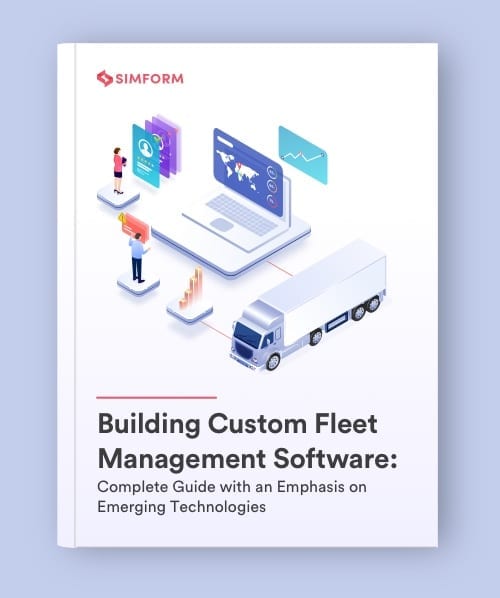Managing a fleet is a challenge. You need to take care of insurance, vehicle maintenance, compliance with government regulations, etc. Amongst all these challenges, the biggest one is – monitoring your fuel costs. You may ask, why? Well, research shows that 24% of your total fleet costs is spent on fuel, which is a quarter of your total expenditure!
Surprisingly, a lot of ill-factors contribute to this total fuel cost. Fleet managers often need to deal with menaces like fuel theft, bad driving habits, variable fuel rates, fluctuating transport regulations, etc.
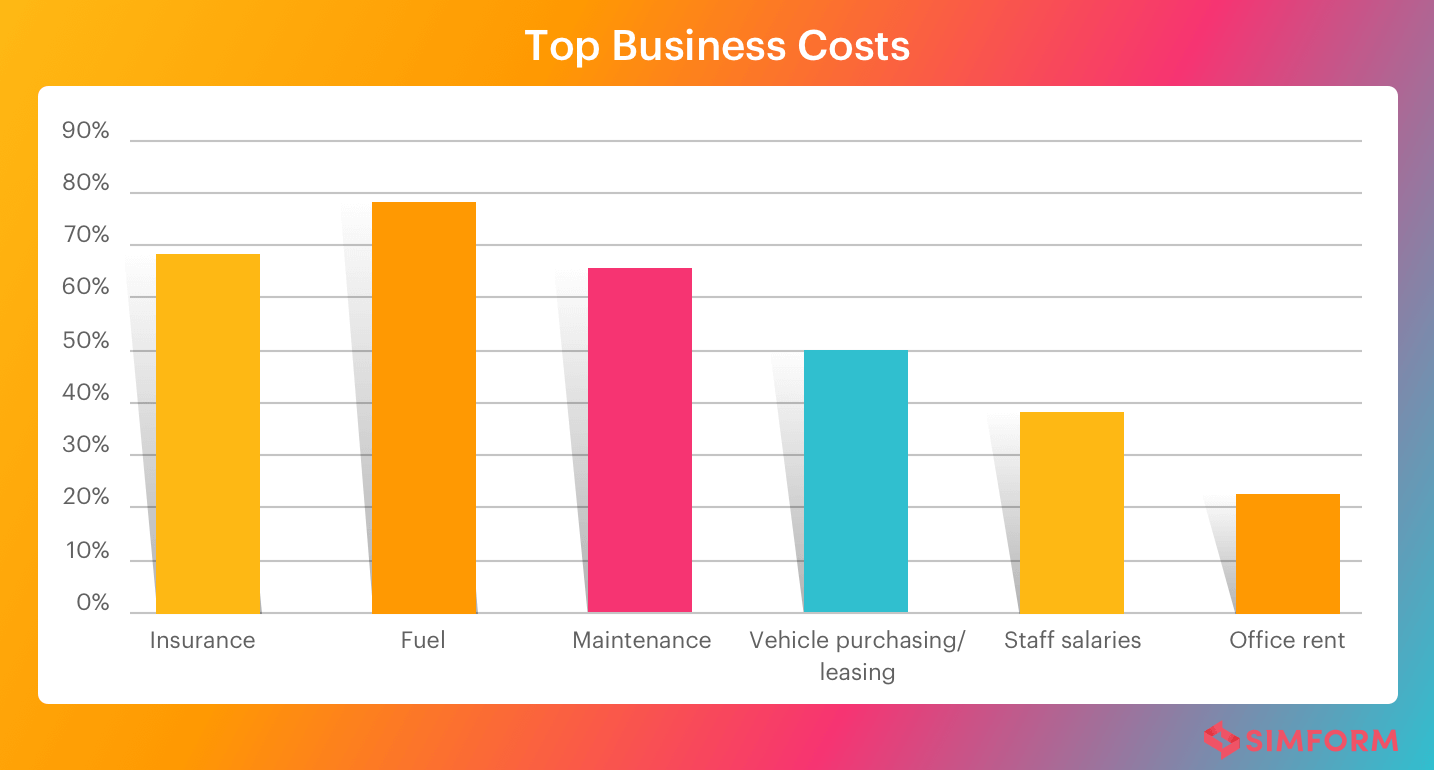
To avoid this, there are many manual ways that you may employ, but almost all of them fail to deliver concrete results. However, with the help of fuel management systems, you can quickly curb these factors.
According to reports, 86% of fleets are using telematics nowadays. One of the major benefits of using a fuel management system is, of course, huge savings on money spent on fuel. A fleet survey reports that 55% of fleets have reduced fuel costs using telematics-based fuel management software.
With this blog, let’s understand what a fuel management system is and how it can improve your fuel monitoring and reduce fuel costs. If you already know how a fuel management system works and want to build one to cut down the fuel costs, you can directly explore our custom software development services, and have a chat with our subject level experts to discuss your requirements.
What is fuel management system?
A fuel management system is an amalgamation of hardware and software systems. It enables fleet managers to track, control and optimize the use of fuel and ultimately save costs.
The hardware component of fuel management systems uses telematics systems to send real-time vehicle information via telecommunication devices. On the other hand, the software component receives this real-time data from the vehicle’s onboard sensors and displays valuable insights regarding the fleet’s fuel storage, delivery, and consumption. This technology monitors a wide range of information, gathers data, and visualizes this data on a software platform to analyze your fleet’s fuel operating costs and minimize fuel consumption.
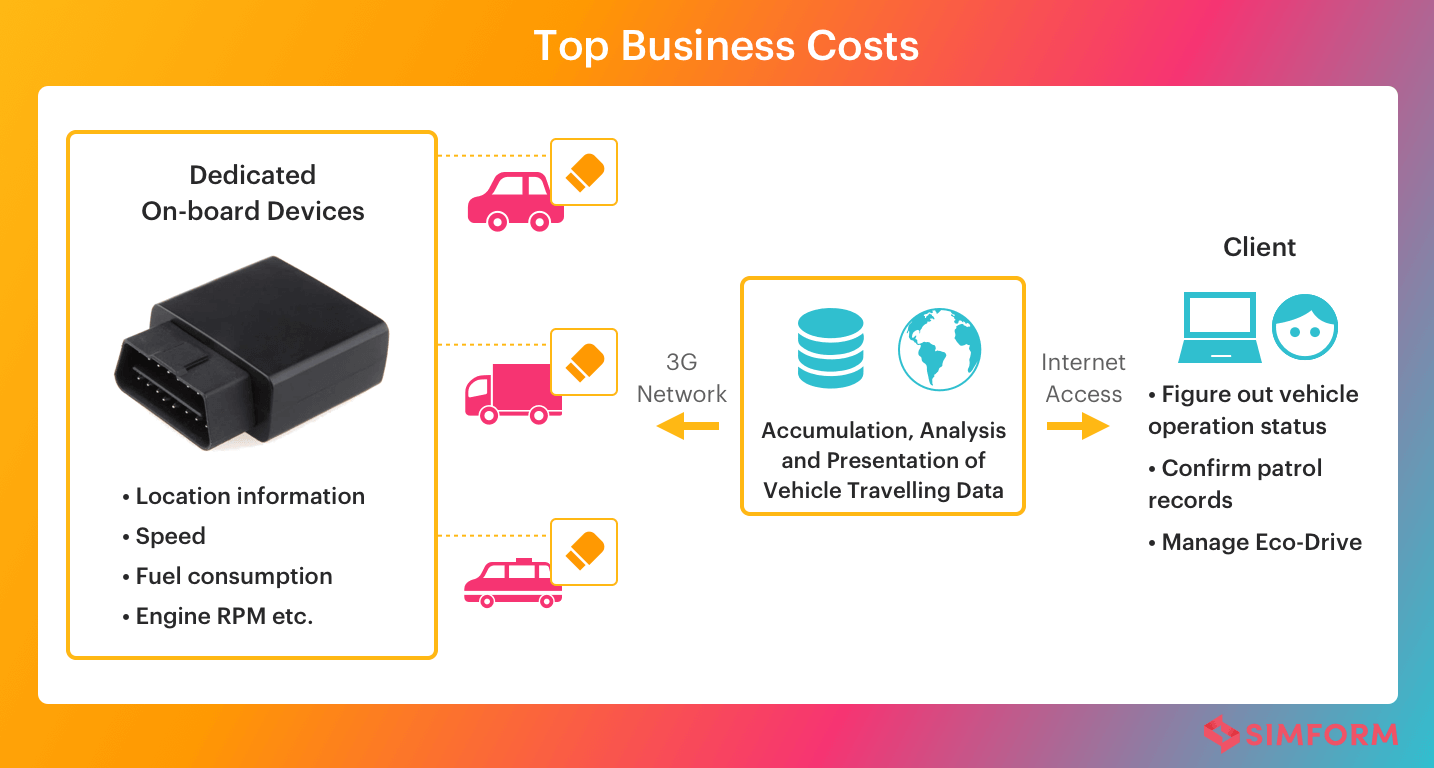
Fleet managers have been doing fuel management for a long time. Earlier they used to employ a manual method with the use of pen and paper, however, times have changed and fuel management can be efficiently done using modern technology.
If you are interested in opting for a fuel management system, your top considerations should be fleet size, scalability, customer support, reliability, user interface, app security, necessary API integrations, etc. Overwhelmed, aren’t you?
Let’s look at the options available to you.
Custom fuel management system vs off-the-shelf
If you are interested in leveraging the benefits of fuel management systems, there are two ways to approach it– an off-the-shelf product or a custom fleet management system.
An off-the-shelf software solution is a ready-made product that comes with low upfront costs, easy installation, and easy-to-understand features. However, since it is designed keeping in mind a huge audience, chances are, it may not touch all your pain points.
On the other hand, custom-made software is built keeping in mind your unique business challenges. Unlike off-shelf solutions, custom software is completely scalable, secure, robust in nature, and is open to personalized modifications.
However, the decision to opt for either of the solutions should be based on your specific fleet requirements. In the next section, let’s look at some of the most sought-after features that one must consider before deciding a particular solution.
Must-have features of a fuel management system
Fleet management is one such business where if you can cut corners, you can maximize your profits. Investing in a custom fuel management system can help you achieve this goal. Let’s have a sneak peek at the best features of having a fuel management system.
Manage, monitor, and report fuel costs
Fleet managers and owners spend a considerable amount of time monitoring the utilization and performance of multiple assets. Not only is this stressful, but it also leaves a chance for negligence that could result in losses. Well, what better way to solve this challenge than to have intuitive software that lets them analyze individual performances without much hassle.
A custom-made fuel management system enables you to record information on the quantity of fuel purchased and its location, giving you a better understanding of the consumption and flags suspicious transactions. Additionally, it generates reports on fuel transactions, billing, tank leakage, and MPG that can also be viewed visually through a dashboard. AI/ML, for one, is being leveraged to extract such insights and predict fuel costs for fleets based on all historical data collected.
Vehicle maintenance
Apart from monitoring fuel discrepancies, you can rely on a fuel management system to assist you with your regular vehicle maintenance. In fact, you can integrate a “daily inspection checklist” feature to keep you on track with regular vehicular maintenance, adhere to government regulations, and meet safety guidelines.
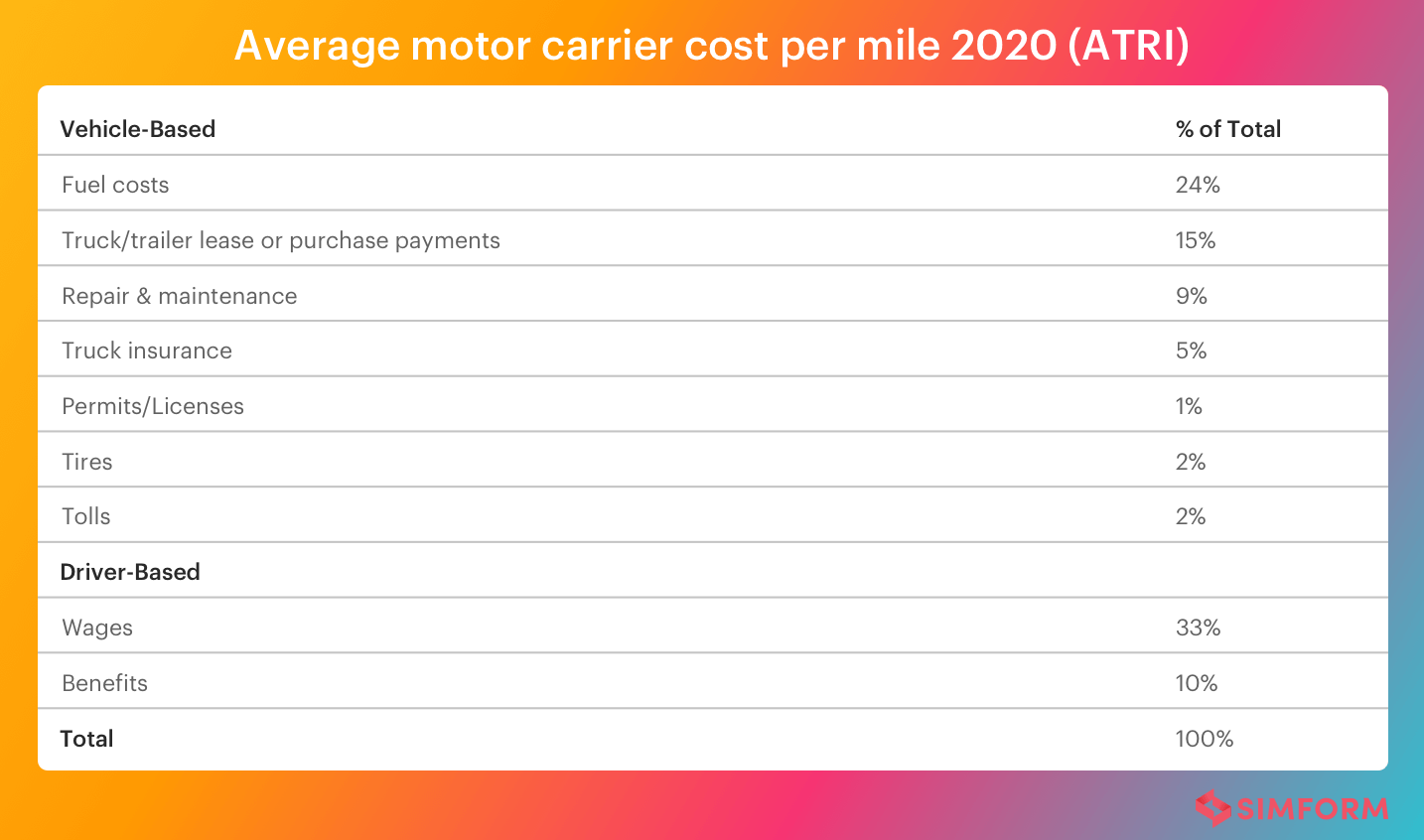
This feature collects raw information through telematics devices from individual vehicles and presents the data on an intuitive kanban view dashboard for easy accessibility. Furthermore, you can develop automation workflows to take care of recurring tasks like checking engine oil every 1 month, monitoring tire pressure every week, etc.
Fleet Vehicle Maintenance: A Quick Guide for Fleet Managers
GPS tracking
Traditionally, there was no provision of tracking your fleet once they had departed. Your only source of communication was via word of mouth from the drivers. However, with the help of telematics, you can now track your fleet on the move.
Using modern-day fuel management systems, you can integrate GPS coordinates data from any of the telematics devices using API integration services. The software maps the GPS coordinates and gives you real-time location information of your fleet.
With fleets on the move, few of the drivers might likely take your valuable asset on a joyride around their stationed location. This could result in wastage of valuable fuel. Fuel management systems use the GPS coordinates around your fleets stationed location to create a virtual geo-fence. This curbs unnecessary fuel consumption.
Creating a geofence using the software is as simple as drawing a circle with a radius. With its center being your fleet’s stationed location. If any of your fleet vehicles attempt to cross the geofence, you will be immediately notified about this malicious activity.
Route optimization
When your fleet is on the move, you may encounter instances like traffic and longer reroutes that result in excessive fuel consumption. Fuel management systems help you get rid of these minor setbacks by integrating Google’s direction API. This service provides real-time effective route optimization by considering parameters like distance, number of turns, traffic conditions, etc.
The software also uses machine learning algorithms to compare your vehicle’s average miles per gallon with your selected route’s MPG. With historical data and monitoring of real-time traffic conditions using GPS positioning, your fuel management system can suggest the optimal route between two points that can offer the best MPG value for your fleet.
How to Make a GPS Tracking System for Vehicle and Fleet Tracking
Fuel card integration
A fuel card keeps track of how much fuel was purchased and from where. As fuel cards work in conjunction with GPS technology and telematics devices, it omits the need for manual registering of fuel entries and validates purchases by exchanging fuel tank data.
By using GPS technology, drivers can search gas stations that accept fuel cards within their vicinity. Furthermore, fuel cards can be integrated by using an API that allows you to perform all sorts of tasks like changing the fuel card limit, adding geofence for using fuel cards, or setting daily transaction limits.
Real-time total cost of ownership
Maintaining your vehicle and having a total cost of ownership (TCO) estimation for every vehicle in your fleet is necessary. Fleet vehicles are used rigorously and so they can wear off quickly and need consistent repairing work now and then. You don’t want to spend your hard-earned money on repairing a vehicle whose TCO is less than its repairment cost.
Cloud technology minimizes the expenditure of maintaining IT infrastructure. It stores all your data on remote servers with RAID 1 configuration to secure your fleets from hardware failure. In addition to this, you get real-time TCO that highlights important parameters like initial cost, operating cost, maintenance, and downtime.
Fuel economy calculator
As far as traditional fuel economy calculators are concerned, there tends to be a significant difference in the actual and estimated fuel costs. Traditional fuel calculators work on a linear principle of considering the fixed mileage of the truck. On the other hand, we have fuel economy calculators powered by AI that enable you to roughly estimate fuel costs during a trip. They take into account the mileage data of a vehicle’s past trips, its age, and scheduled maintenance.
Business benefits of a fuel management system
Apart from saving fuel, a fuel management system comes with many business benefits. Let’s discuss a few of them in detail!
Improved fuel efficiency
When it comes to fleets, even the smallest detail like not having proper tire pressure can impact your fuel efficiency. A fuel management system comes in handy to assist you with the daily inspection of your vehicle. This serves both as meeting government’s safety compliance as well as vehicle’s regular maintenance.
Prevents fuel thefts and fuel misallocation
According to statistics, 65% of the companies reported being exposed to fraudulent activities such as drivers using fuel cards to make personal purchases or sharing fuel cards between drivers. Using a telematics-based fuel management system lets you compare billing receipts with actual fuel consumption, ruling out such petty thefts.
Streamline fuel tax reporting
Fleet operators often need to comply with the International Fuel Tax Agreement (IFTA) – an agreement between the US states to record the fuel used across different jurisdictional states by commercial carriers.
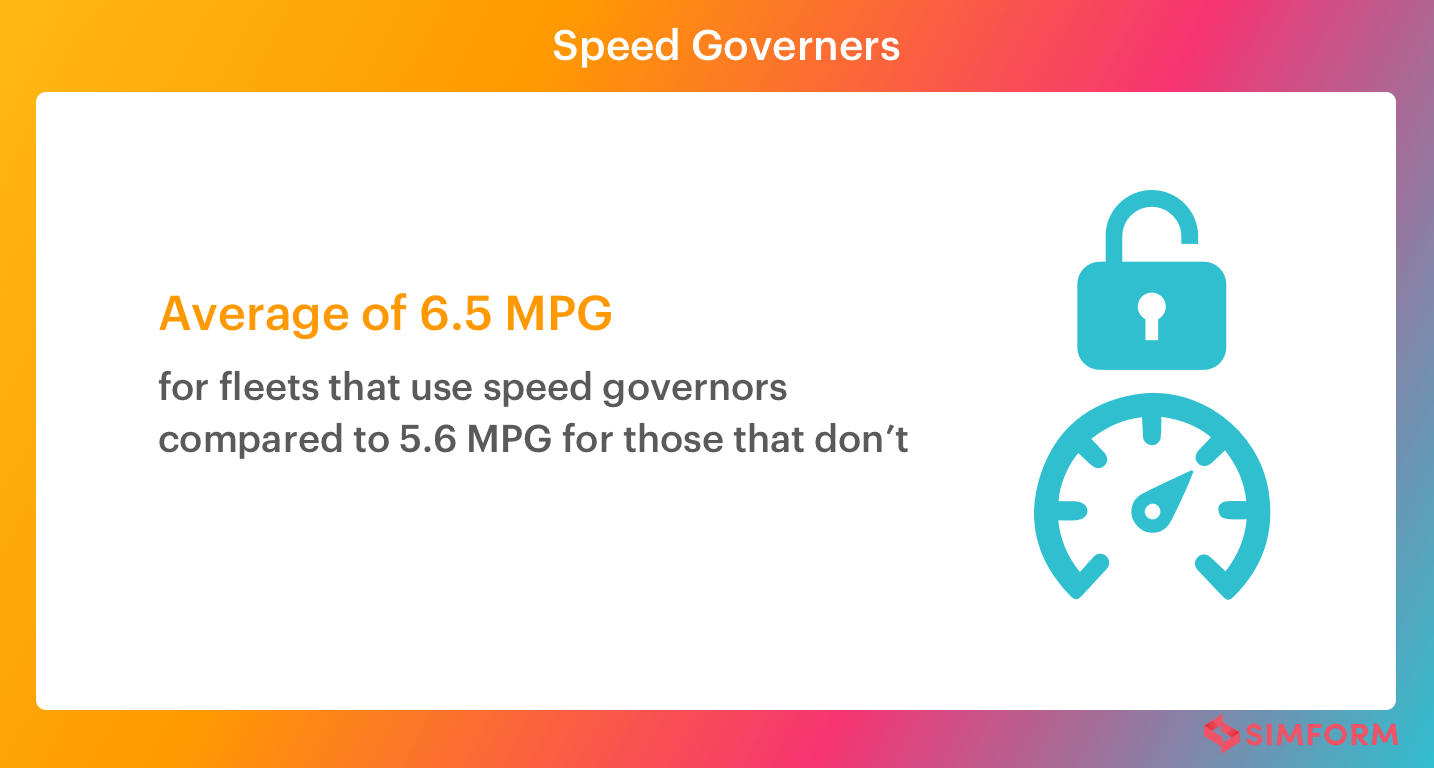
To eliminate manual entries and long waiting times, you can integrate GPS with fuel management systems. It pushes relevant data to the tax software, putting an end to long waiting times for drivers crossing borders.
Monitors drivers behavior
How you drive your vehicle impacts the fuel economy of your vehicle. Telematics monitors driving behavior in speeding, hard acceleration or braking, and idling through the installed in-vehicle sensors. This allows you to keep a tab on driver behaviors, gives you better insights into excessive fuel consumption, and enables effective training-need analysis.
Let’s have a look at how driving behavior expends fuel unnecessarily.
Excess speed
Most vehicles, including trucks, are most effective when traveling at moderate speeds as rash driving results in fuel wastage. It’s observed that for every 5 hours per mile increase in speed after 35mph, fuel efficiency goes down by 5-10%.
Hard acceleration or braking
Quick starts and stops take a significant toll on the engine as well as your fuel economy. Similarly, constant unnecessary braking and changing of lanes become a vicious circle as it necessitates even more bursts of acceleration to keep up with traffic. Such kind of driving can lower your gas mileage by 33 percent at highway speeds.
Unnecessary idling
Engine idling is nothing but a waste of fuel. When your engine is idle, it is giving 0 miles per gallon of fuel. If you see frequent idling behavior in your fuel management system, you need to consult with the driver about this behavior to save fuel losses in the future.
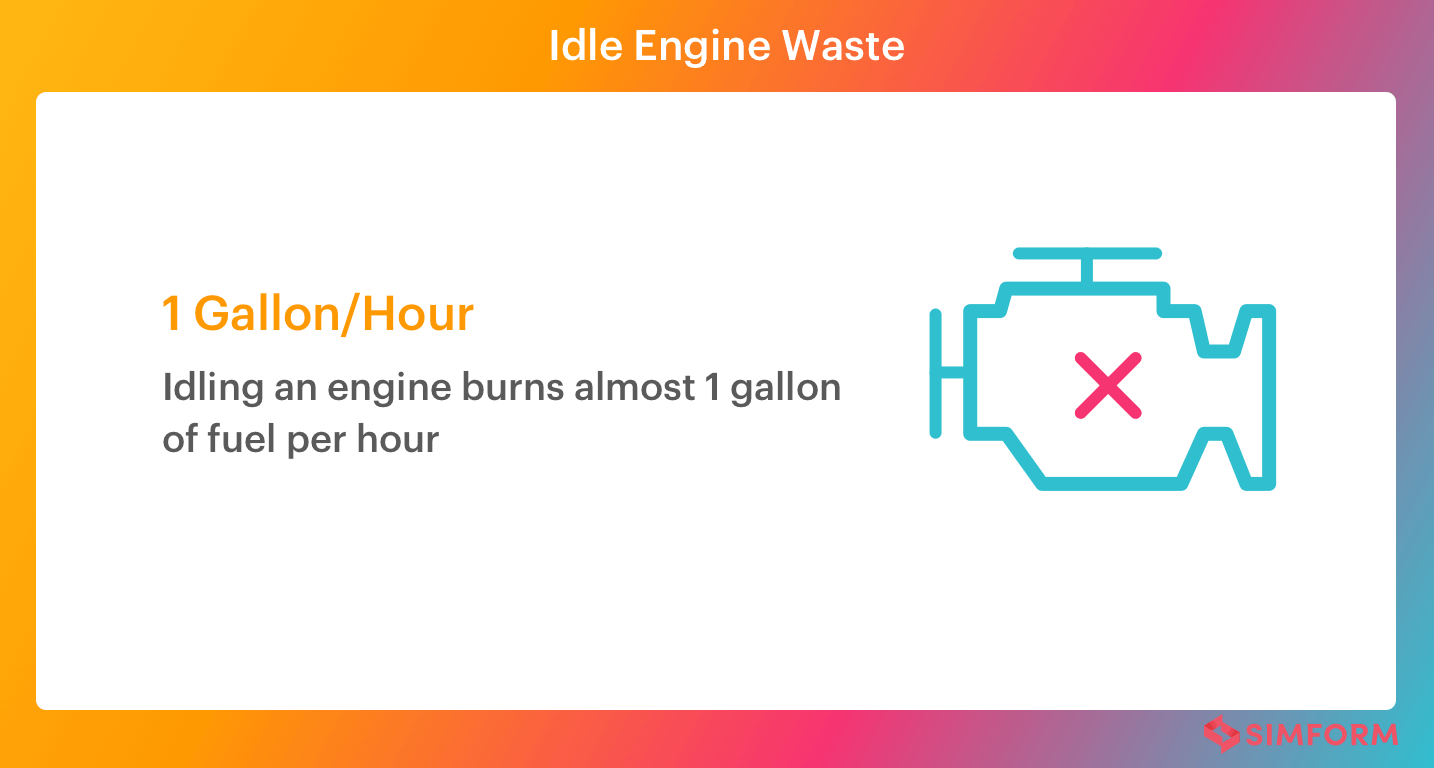
Being idle for too long can be illegal as well. According to idling regulations, a truck is allowed to idle – in some states, as little as one minute.
Concluding remarks!
If you are on the lookout for saving fuel costs and curb petty menaces that you have been overlooking, a fuel management system is your best bet, be it custom made or an off-the-shelf solution. We dedicated this blog to explain the business benefits for fleet operators by using the technological advancements in the fleet management industry. In case of a query or need for guidance on the subject, let us know in the comment section below.
